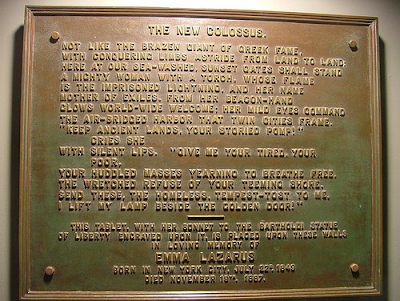When readers at KRG choose their poems they cast a wide net. On this occasion we had a Malayalam poet, Edasseri Govindan Nair, represented by a poem. Malayalam poems are usually sung or chanted as chollal, but here it was delivered as the English translation of a modern poem of hope and longing; hope for the future made possible by a new bridge to transform the countryside, and longing for the old days. Other Malayalam poets who have been recited at KRG are K. Satchidanandan, Balachandran Chullikad, O.N.V. Kurup, Sugatha Kumari, Balamani Amma (mother of the poet Kamala Das), Kumaran Asan, and Chemmanam Chacko.
When one of our readers, Kavita, chose the ever popular Maya Angelou, Joe raised the question of who has been the most recited poet at KRG – after William Shakespeare, of course. The answer is Keats (13), then Eliot (11) and numerous Romantic poets with 8 occurrences. But how is it that Rumi, the most widely published poet in modern times, scarcely finds mention in the pages of KRG’s blog? He wrote lines like this (translated by Farrukh Dhondy)
T.S. Eliot, ever popular at KRG was represented by two short poems that did not require the usual annotation to lay bare obscure meanings. In the first poem the poet hears the noise of plates in a basement kitchen rattling somewhere as he gazes on the street from a window, and then
The brown waves of fog toss up to me
Twisted faces from the bottom of the street,
The second poem featured a fictional cousin of modern mores who smokes and dances all the fashionable dances. The poet holds up the censorious sight of Matthew and Waldo (that is, Matthew Arnold and Ralph Waldo Emerson) trained on Nancy Ellicott – not that she cares. The last line (‘The army of unalterable law.’) is taken from another poet, Meredith, but Eliot is contrasting his reference ironically with modern devil-may-care attitudes.
Mary Oliver, the Pulitzer prize-winning poet whose rapturous odes to nature and animal life brought her critical acclaim
Mary Oliver was another outstanding presence at the session when Saras chose two of her poems. We know her poems from three earlier occasions when she has been presented. She is also the marvellous author of a handbook of poetry, that lays bare the mechanics of how a poem is built, from meter and rhyme, to form and diction, being imbued with sound and sense. Mary Oliver employs wonderful examples, ancient and new, to illustrate her exposition. It will surprise no one that six of the ten poets chosen at this session were women.Most prominent of these is The New Colossus, a Petrarchan sonnet (rhyming abba abba cdc dcd). The entire sonnet is engraved on a plaque at the base of the Statue of Liberty in New York Harbour and lines 10 and 11 are often quoted:
Give me your tired, your poor,
Your huddled masses yearning to breathe free
These words are a tribute to the diversity of America, which has been under threat from the masses who seek to enter America from its southern border. The press of poor people entering from Mexico is no longer a welcome sight to Democrats or Republicans. The original Colossus of Rhodes was a towering statue of Helios the sun god, built in 280 BCE to commemorate the defence of Rhodes against the attack of Demetrius. The sonnet of Emma Lazarus contrasts this ancient colossus with the Statue of Liberty presented by France as a symbol of liberty illuminating the world (La Liberté éclairant le monde).




